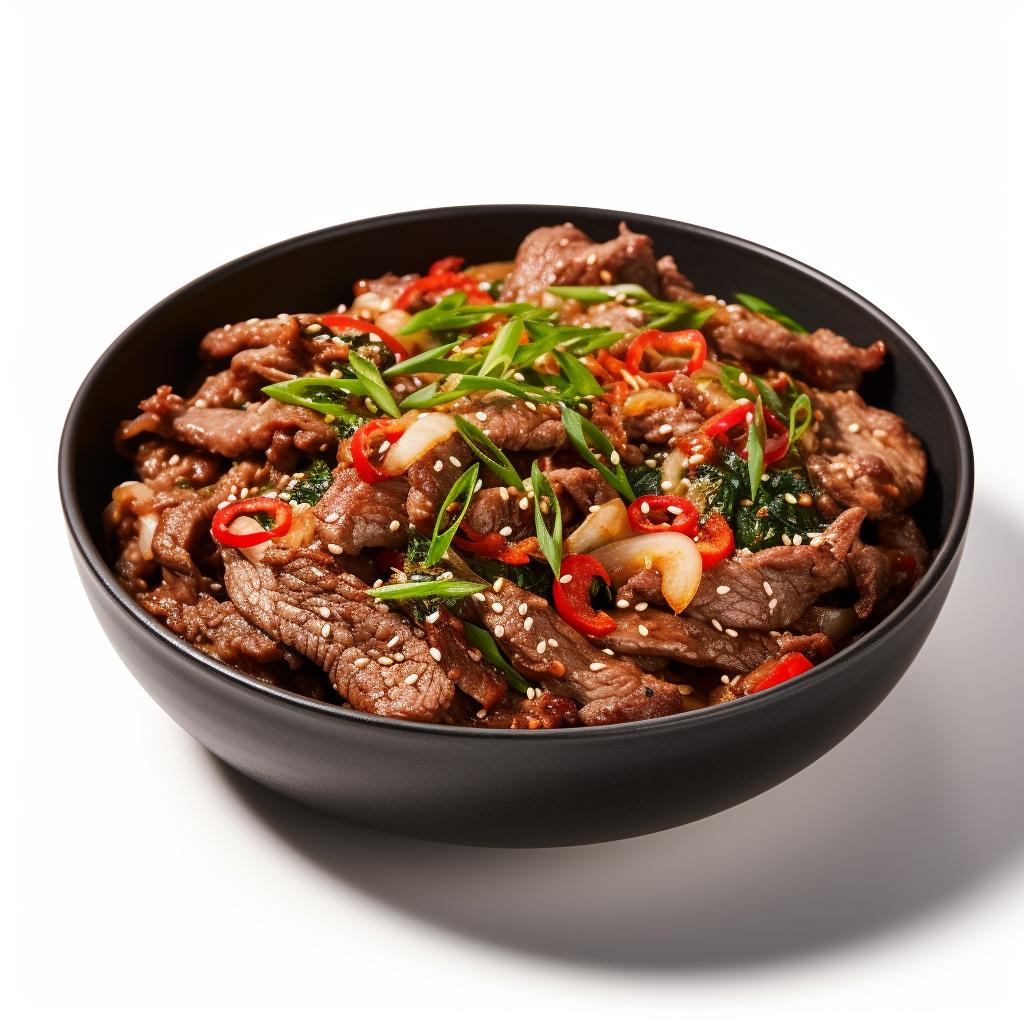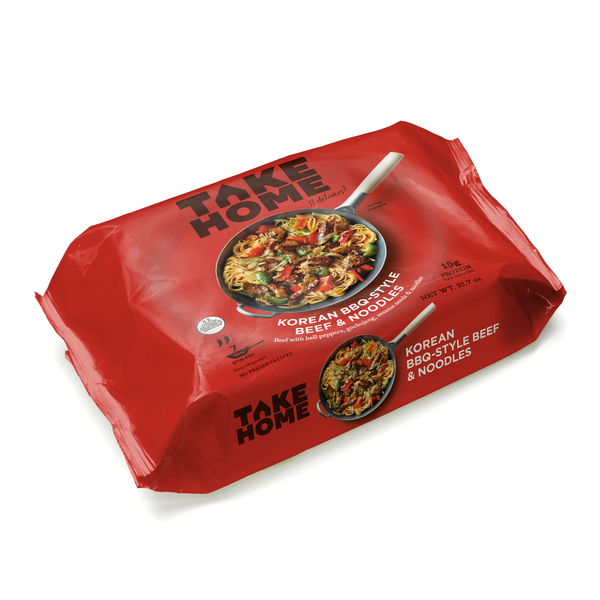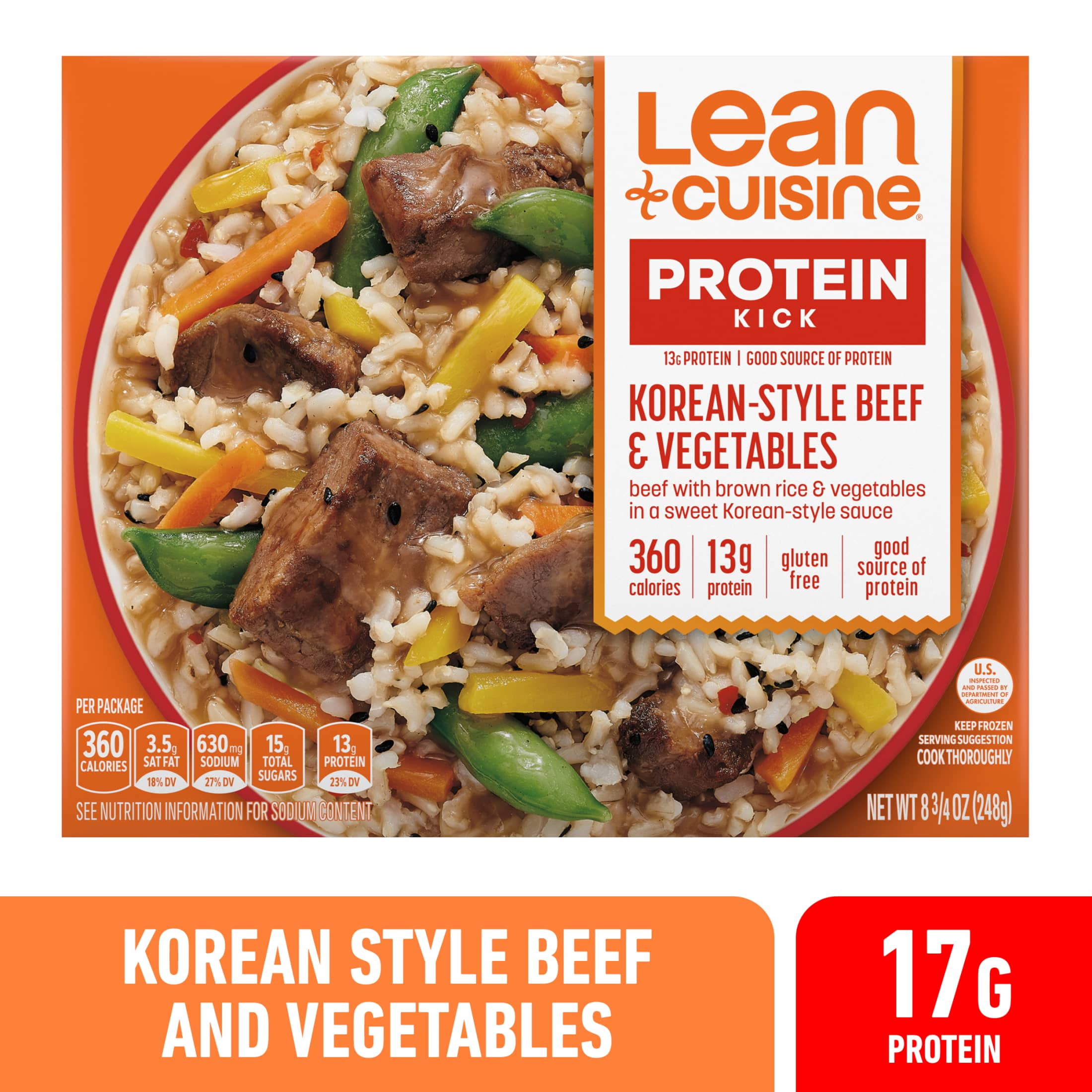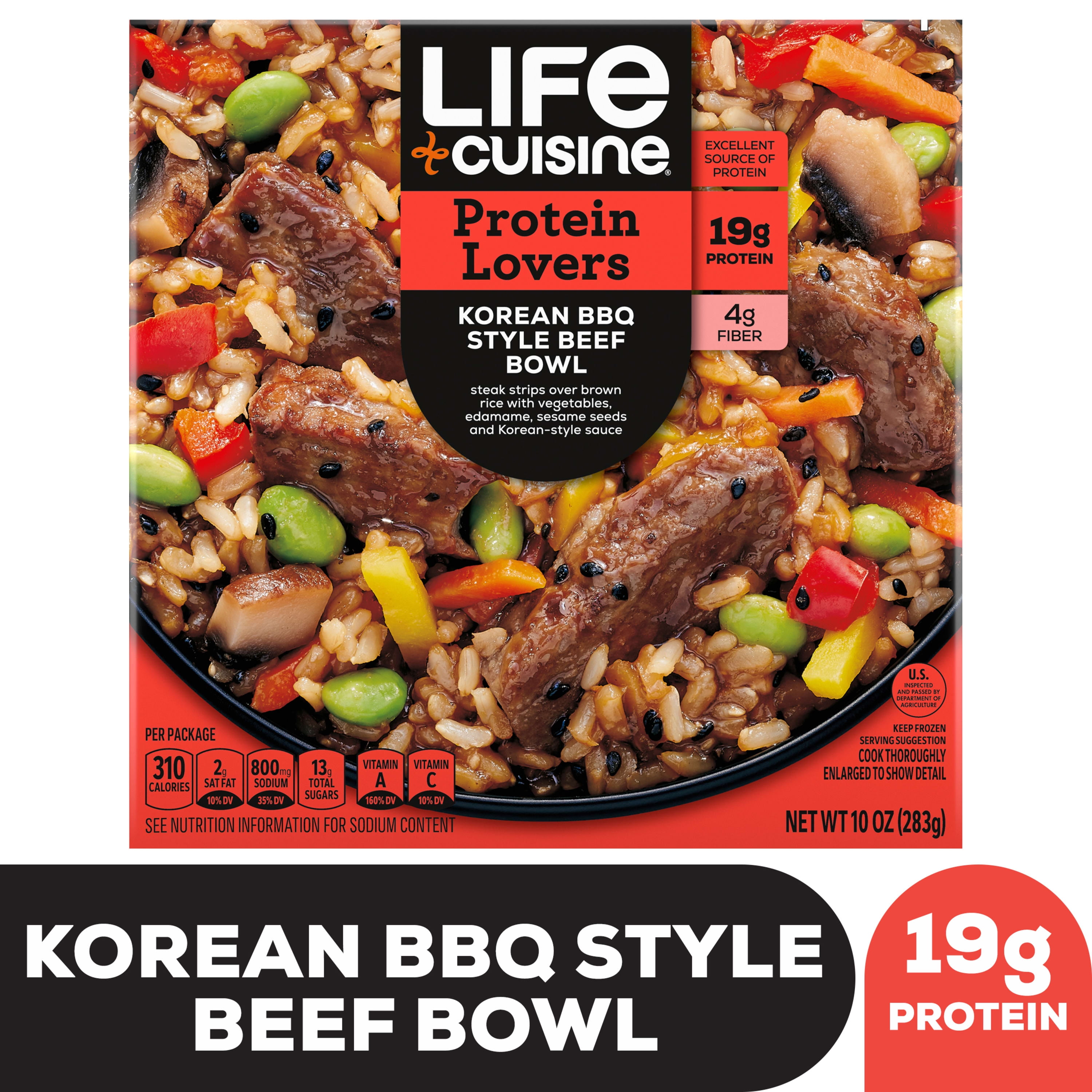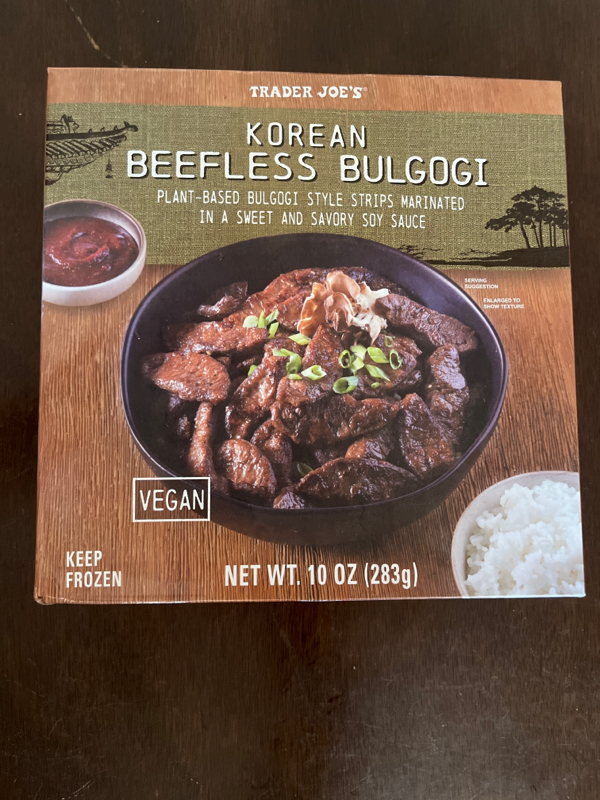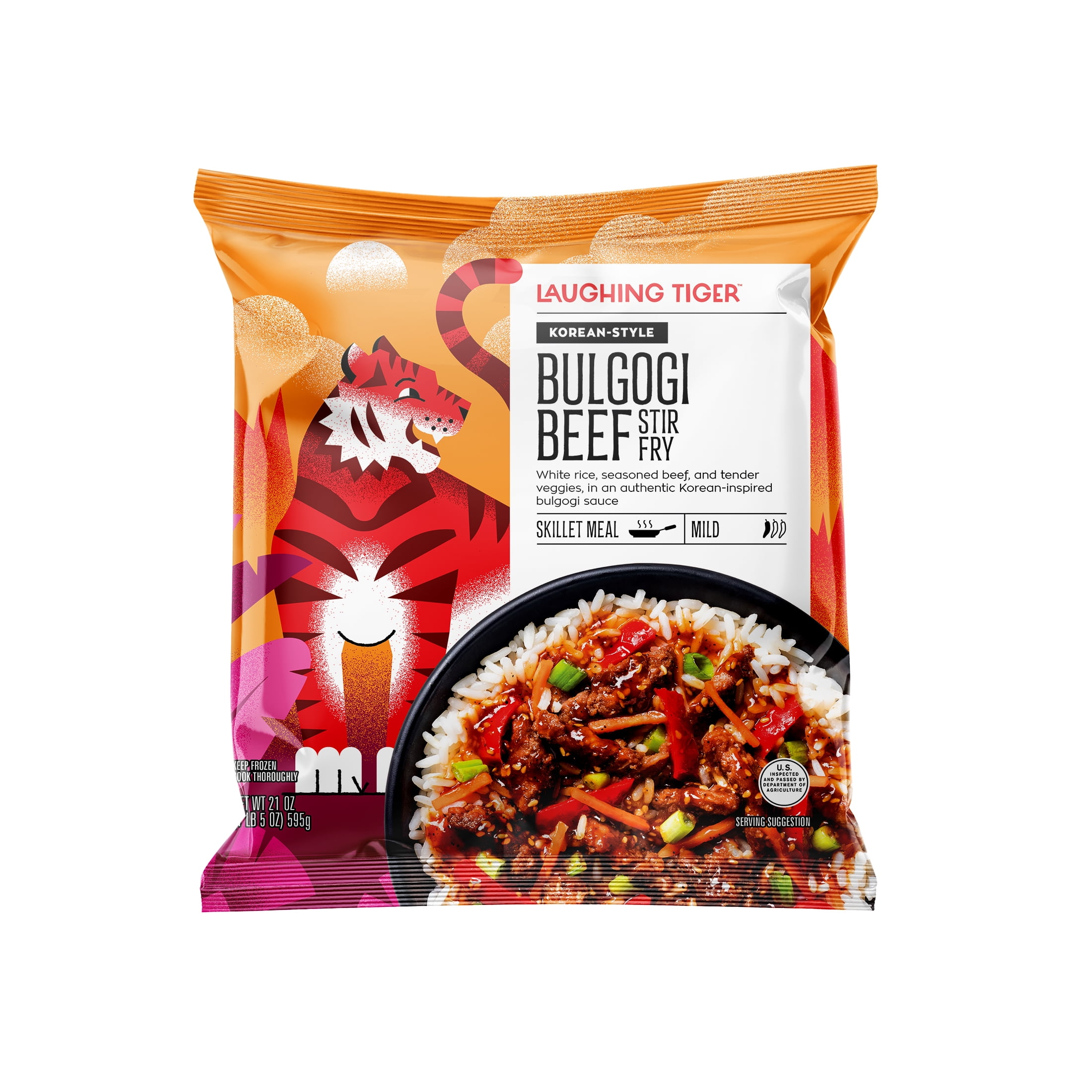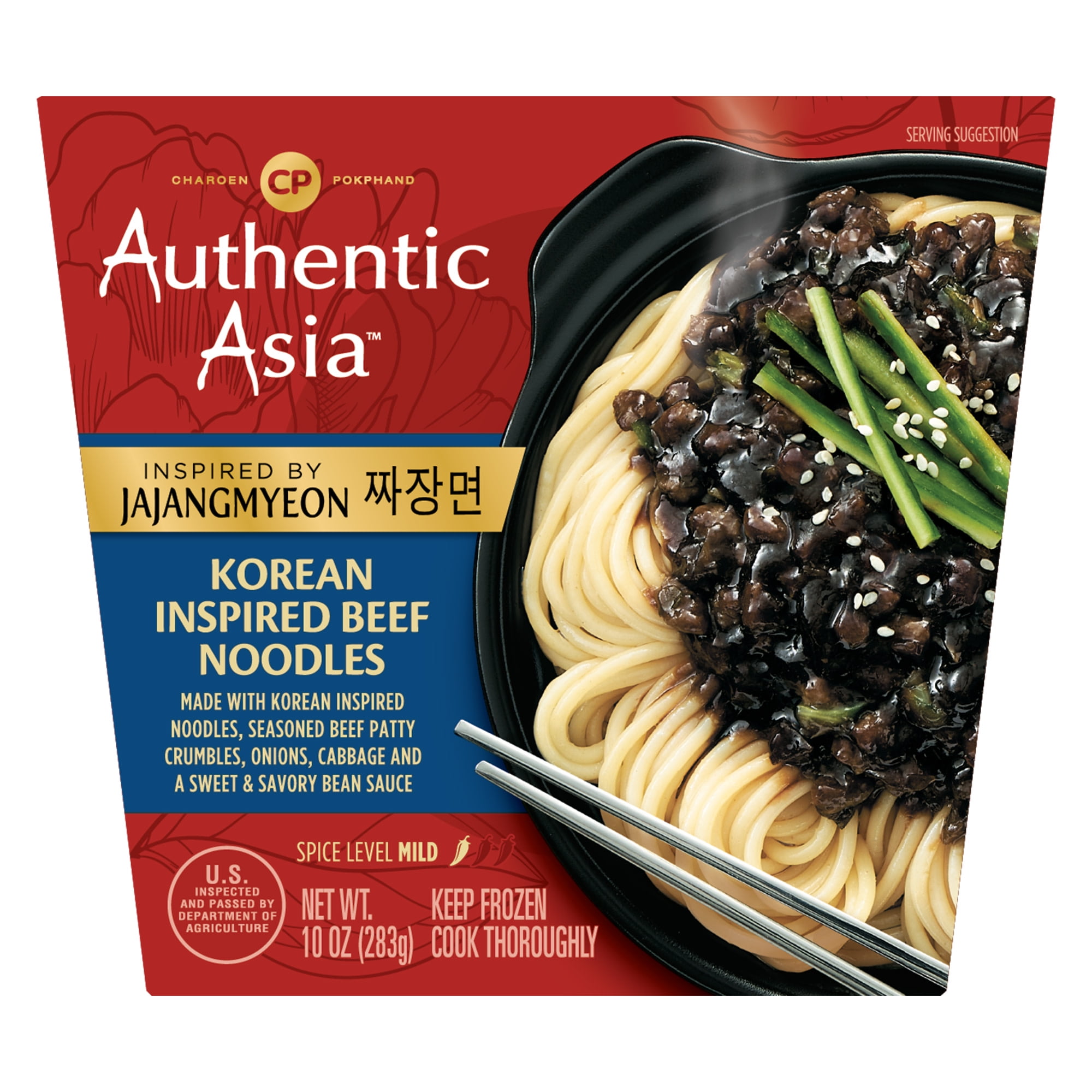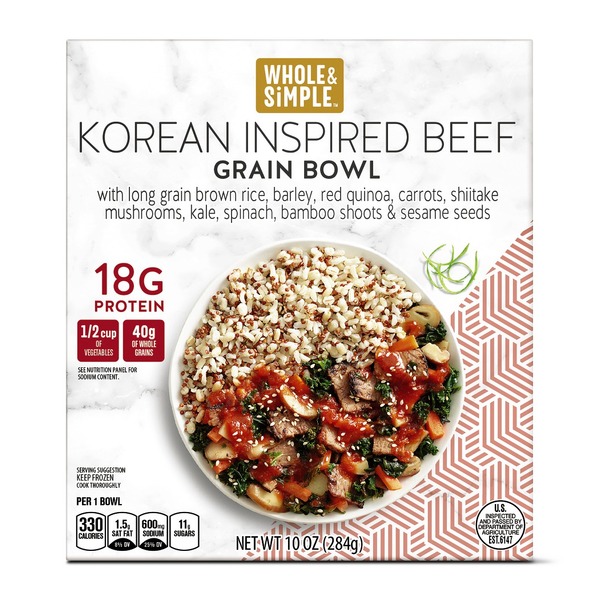Korean Beef
Korean Beef, often prepared as a dish known as "Bulgogi," is a classic staple in Korean cuisine. It is typically marinated in a delicately balanced, sweet and savory sauce, consisting of soy sauce, sesame oil, garlic, sugar, and sometimes Asian pear, to tenderize the beef and enhance its flavor.
Beyond its use in Bulgogi, Korean Beef also plays a key role in "Bibimbap," a vibrant mixed rice dish. The versatility of Korean Beef makes it perfect for wraps, sandwiches, tacos, and more, inviting home cooks to explore the robust flavors of Korean cuisine.
68%
CARBS
13%
FAT
19%
PROTEIN
Featured Articles
44 Korean Beef Products
Healthy Choice Power Bowls Korean Inspired Beef Bowl
Take Home Tonight Korean BBQ Style Beef Meal
Lean Cuisine Frozen Meal Korean-Style Beef and Vegetables, Protein Kick Microwave Meal, Microwave Beef Dinner, Frozen Dinner for One
Korean Style Bbq Beef Bowl Prime Rib Beef Steak With Shiitake Mushrooms, Edamame, Peppers, Egg, Kale, Carrots, Sesame Seeds And Korean-Style Bbq Sauce, Korean Style Bbq Beef Bowl
Korean Beefless Bulgogi
Laughing Tiger Korean Style Bulgogi Beef Stir Fry - Frozen Skillet Meal
Authentic Asia Korean Inspired Beef Noodles Meal
Healthy Choice Power Bowls Korean-Style Beef, Frozen Meal
Whole & Simple Korean Inspired Beef Grain Bowl
Schweid & Sons® Korean BBQ Blend 80/20 Ground Beef
36 Recipes for Korean Beef
1
Savory Korean-Style Ground Beef Bowl
2
East-Asian Beef and Rice Noodles Bowl
3
Easy Korean Beef and Veggie Rice Bowl
4
Effortless Korean BBQ Beef Bowl
1
Easy-Peasy Korean Beef Bowl
7
Sweet and Spicy Korean Beef Rice Bowls
2
15-Minute Korean Beef Rice Bowls
1
Savory Korean Beef Rice Bowl
Korean Beef FAQ
What is Korean beef?
What kind of beef should I use for Korean beef?
How do I marinate the beef?
What is the best way to cook Korean beef?
What are some tips for making the best Korean beef?
Can I substitute any ingredients?
How can I adjust the consistency or texture of the recipe?
How should I store leftover Korean beef?
Expiration & Storage Tips
When does Korean Beef expire?
If you've picked up some fresh Korean Beef from the grocery store, it is usually best to use or freeze it within 2 to 3 days of purchasing. Unopened, pre-packaged Korean Beef products can last up to 2 weeks if refrigerated, but always check the 'best before' date on the package. Once opened, consume within 3 to 4 days. If you've got some leftover Korean Beef stews, curries or other homemade dishes, they are safe for about 3 to 4 days in the fridge, beyond that, it's best to freeze these dishes. Frozen Korean beef in its raw state can last up to one year without significant degradation. For cooked dishes containing Korean Beef, aim to use them within two to three months.
How do you tell if Korean Beef is bad?
Check the Korean Beef for any off odors, it should not smell sour, rotten or very strong. The colour can also tell you a lot. While fresh beef can be slightly brown due to a lack of exposure to oxygen, if it turns a grayish hue, it's time to throw it away. Any sliminess or stickiness to the touch is also a bad sign. The same applies to cooked Korean beef dishes — if they have an unusual smell or a change in texture, it might have gone bad.
Tips for storing Korean Beef to extend shelf life
• Always store Korean Beef in the fridge or freezer, never at room temperature.
• Fresh beef should be kept in its original packaging until you are ready to use it. If it’s been opened, rewrap tightly in foil, plastic wrap or a plastic bag.
• If freezing beef, make sure it’s wrapped properly or placed in sealed containers to prevent freezer burn.
• To defrost Korean Beef, it's safest to let it thaw slowly in the fridge.
• Marrinating korean beef? Keep it in the fridge and use it within two days.
• If you have leftovers of Korean Beef dishes, transfer them into smaller containers before refrigerating, this way they will cool down quicker and bacteria will have less chance to spread.
• Date your frozen beef! It’s easy to lose track of when you’ve popped something in the freezer, a quick label will help remind you.
Health Info
Macros
6g
CARBS
19g
FAT
15g
PROTEIN
Allowed on these diets
LOW FAT
HIGH CALCIUM
MEDITERRANEAN
LACTOSE FREE
Contains these allergens
SOYBEANS
WHEAT
